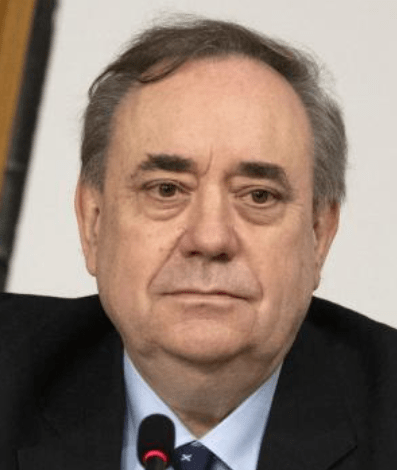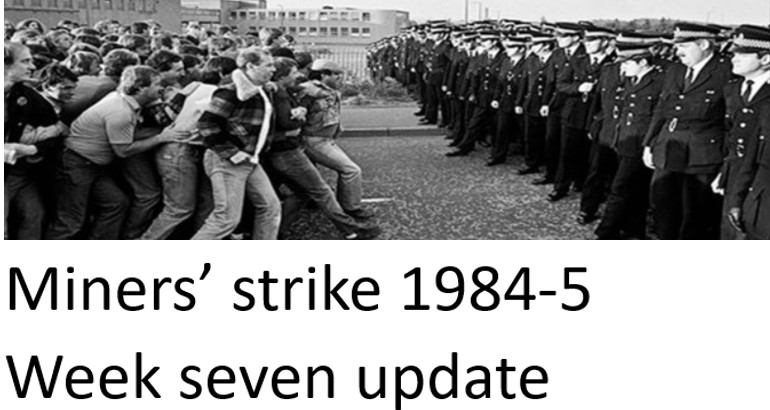By Gray Allan, Falkirk Labour Party member
The bitter personal vendetta between Alex Salmond, former SNP leader and First Minister of Scotland and his successor, Nicola Sturgeon, has taken a dramatic turn by Salmond publicly announcing the founding of his new party, Alba.
The Party will stand candidates only on the regional lists, where it will field four on each. So as not to split the nationalist vote in the constituencies, where MSPs are elected by “first past the post”, they will not stand candidates at this level.
The aim of the new party is to create a so-called ‘supermajority’ for Independence in the next Scottish Assembly. Salmond will shed no tears if this causes collateral damage to Sturgeon and the SNP, such is the level of hatred between the two.
McAskill “would be no loss”
So far two Westminster MPs have joined Alex Salmond’s party. One is Kenny McAskill, who is seen as being on the ‘left’ of the SNP, and a former Justice Minister in the Scottish Government. Ian Blackford, the SNP leader at Westminster, claimed McAskill “would be no loss”. The other is Neale Hanvey, who was elected in 2019 by defeating Lesley Laird, Labour’s Shadow Scottish Secretary of State. Hanvey was recently “suspended” by the SNP for alleged anti-Semitism, although this was only for show, because SNP activists continued to work in his campaign, as they have repeatedly stated on his Facebook page. Both Hanvey and McAskill are now on the receiving end of SNP on-line vitriol.

The idea of a second nationalist party standing on the list only is not a new idea. It was first suggested when the Johnson Government said it would refuse permission for a second independence referendum under any circumstances. The idea of standing separate candidates had no traction. Until now.
The seats from the regional list give an element of proportionality to the Scottish Assembly election. If a party wins a lot of constituencies through FPTP, it will pick up few or very few list seats. So, in theory, if a second nationalist party stands only on the list and it gets most or all the nationalist second preference votes, it could deliver a combined pro-independence majority of over 50%. This is Salmond’s ‘super-majority’ tactic, and underpinning it is the idea that independence is bigger than any individual political party.
A solution to a non-existent problem
The SNP leadership is opposed to this tactic. They see it as a solution to a problem that does not exist. Their aim remains a majority SNP Government in Edinburgh or, as at present, a minority SNP Government propped up by the Greens, who also support Scottish independence.
The SNP hope to win 64 or 65 seats out of the 129 available. They only get four seats from the lists in Highlands and Islands and in the South of Scotland regions, but they would still need those to win a majority. Alba could split the nationalist vote on the list and deprive the SNP of those extra seats. This is why Alba and Salmond have been attacked so viciously by the ‘Cybernattery’, the SNP keyboard warriors.
On current polling figures, the SNP is set to equal its present showing in the Assembly, but might get over the 65 seat line and get an overall majority. Alba could torpedo this. With no overall majority, or with a coalition, the Tories could be confident in refusing a second independence referendum, IndyRef2.
Salmond’s personal approval rating lower than Johnson’s
If there was a majority SNP government, Indyref2 would be harder to refuse, especially if it was based on over 50% of the votes cast. The Alba development, therefore, is of critical importance to the SNP.
What cannot be known just now are the chances of Alba being successful. No polling that includes the new party has yet been done, although Salmond’s personal unpopularity is known. Apparently, only 14% approve of him; he is less popular in Scotland than Boris Johnson!
The Alba Party may be a very short-lived bubble. The nationalist website Bella Caledonia describes Alba as being a network of some of the “most toxic and malignant forces on the fringe of the nationalist movement.” The latest candidate announced is none other than Tommy Sheridan, erstwhile ‘socialist’.
SNP has very bureaucratic internal regime
The attraction of Alba for disaffected SNP supporters is not primarily due to loyalty to Alex Salmond, but it owes much more to the bureaucratic internal regime of the SNP. Political exiles from the SNP speak of a dictatorial leadership clique that controls the party with an iron fist. Power is concentrated in the hands of Sturgeon and her husband, Peter Murrell, the Chief Executive Officer of the SNP.
Disagreement in the party is not tolerated; Party opponents are briefed against, smeared and side-lined. Apart from the case of Salmond himself, other recent examples can be seen it the way opponents of the SNP line on trans rights were treated. The formation of Alba represents the most serious split in the SNP for decades, possible even since the founding of the Party in 1934 by the merger of the National Party of Scotland and the Scottish Party.
While Nicolas Sturgeon sometimes seems to have the ability to walk on water, there is still a significant minority in the electorate who detest her. Notwithstanding their dislike for Salmond, it is entirely possible that they might be tempted to give their second vote to Alba, as a way of giving her a thick ear. This would damage Tories, Liberals and Labour.

So what about the other parties? The Greens could be the worst hit by Alba electorally. SNP second votes which sometimes went to them could well go to Alba instead. They have a core environmentalist vote that will stay firm; even though they are committed to independence, it is not seen as their top priority. The Greens will be forced back on to their environmental territory.
Labour as ‘red Tories’ is an effective slogan
Salmond’s intervention will push the constitutional issue back up the agenda. The Tories always benefit from this. Labour under Richard Leonard correctly focused more on the issues affecting the working class: cuts and austerity, the housing crisis, protecting the NHS, ending poverty pay, creating a national care service and renationalising bus and rail services.
New right wing Labour leader, Anas Sarwar, is continuing with this programme so far. But Scottish Labour, dominated by its right wing has nothing to say about an independence referendum other than “now is not the time”, which is exactly the same line the Tories take. The nationalist will once again label Scottish Labour as “Red Tories” and it is a very effective slogan.
Independence for Scotland would be a backward step for the working class in Scotland and in the UK as a whole. Of Scottish Labour’s 23 MSPs, only three are constituency members who won a FPTP election. The remaining twenty were elected on the list by proportional representation. If Scottish Labour is unable to move the debate onto its ground and is unable to come up with a credible position on the constitutional question, the intervention of Salmond’s Alba Party could be very damaging indeed, and not only for Labour but for the socialist cause more widely.



